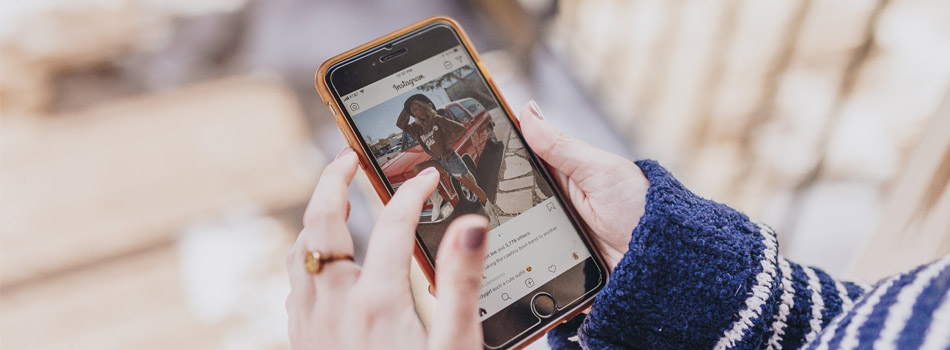During an unusual period of social distancing and national lockdowns, social media has played an integral role in helping family and friends stay virtually connected. Consequently, this has led to a dramatic surge in daily usage of social media platforms such as Facebook and Instagram. However, has this enhanced usage led to many developing an unhealthy relationship with social media?
On average, people in the UK check their smartphones every 12 minutes, with 40% of adults reaching for their phones within five minutes of waking up. A report published by an all-party parliamentary group outlines how 27% of children who spent more than 3 hours a day online, start to show symptoms of mental ill health due to the risk of developing a social media addiction. So, what makes social media so addictive?
Why is social media so addictive?
Creating a False urgency
“It’s not enough that you use the product consciously, I wanna dig down deeper into the brain stem and implant, inside of you, an unconscious habit…” (Tristan Harris, Co-Founder, Center for Humane Technology)
Many social media platforms use triggers such as digital notifications to urge us to take action on our phones. This sparks the salience network within our brains to effectively deceive us into thinking something as insignificant as an Instagram ‘like’ holds a great sense of urgency.
Intermittent Reinforcement
“You pull down and you refresh, it’s gonna be a new thing at the top. Pull down and refresh again, it’s new. Every single time.” (Joe Toscano, Former Design Consultant at Google)
The ‘pull-to-refresh’ feature, frequently used by social media platforms, provides intermittent reinforcements. Often, when we refresh our social media apps we are greeted with something enjoyable such as a new post or story (a ‘reward’), other times there is nothing. It’s our fascination with the unpredictable that forces us to return and traps us in a spiral of endless searching and endless scrolling. Our feeds are intentionally created to be endless as a natural end point would encourage us to move on!
The Dopamine Effect
“…we have a basic biological imperative to connect with other people. That directly affects the release of dopamine in the reward pathway.” (Dr. Anna Lembke, Medical Director of Addiction Medicine at Stanford University)
Certain activities that make us feel good, such as hugging and laughing, can trigger dopamine to be released in our brain. These rewarding feelings encourage us to want to replicate such actions. However, when dopamine is released to the wrong trigger, dangerous habits can start to be created. Social media platforms habitually take advantage of our fear of missing out and need for social validation. They flood us with carefully chosen images and videos, showing only what others want us to see. The growing influencer industry is also establishing standards of perfection, creating further self-doubt and constant social comparisons.
Time to break your phone addiction?
A gradual reduction
The continuous need to check our phones can slowly start to become habitual and impulsive. For many, the thought of their phone being out of sight with the inability to check their notifications can be extremely difficulty. If this sounds familiar, try placing your phone in another room for 30 minutes. Once you accomplish this, you can gradually start to increase the length of time you go without checking.
Monitor usage
Monitoring the time spent on social media can start to make us more aware of how we spend our time during the day. There are now numerous apps and phone features that allow you to easily monitor this. For example, iPhones allow you to turn on the ‘Screen Time’ feature, which gives you a daily and weekly report on your phone usage. Instagram also enables you to monitor your usage under ‘Your Activity’. You can set daily reminders when you have reached your allocated time limit set through the app.
Buy an alarm clock
Using your phone as an alarm forces you to give in to the temptation to check your phone last thing at night and first thing in the morning. You end up being dependant on your phone to get to sleep and prolong your ability to get out of bed quickly in the morning. By buying an alarm clock, you can designate bedtimes as smartphone-free zones.
Spring clean your contacts
How many of your friends on social media do you actually spend time speaking to? By deleting contacts on social media sites and uninstalling unused apps, you can significantly reduce any distractions previously drawing you to your phone.
These simple, day-to-day lifestyle changes can have a remarkable impact on your daily life through improved sleep, increased productivity and being more present in the moment. So why not try break your unconscious, addictive habits today to reclaim your collective well-being.






